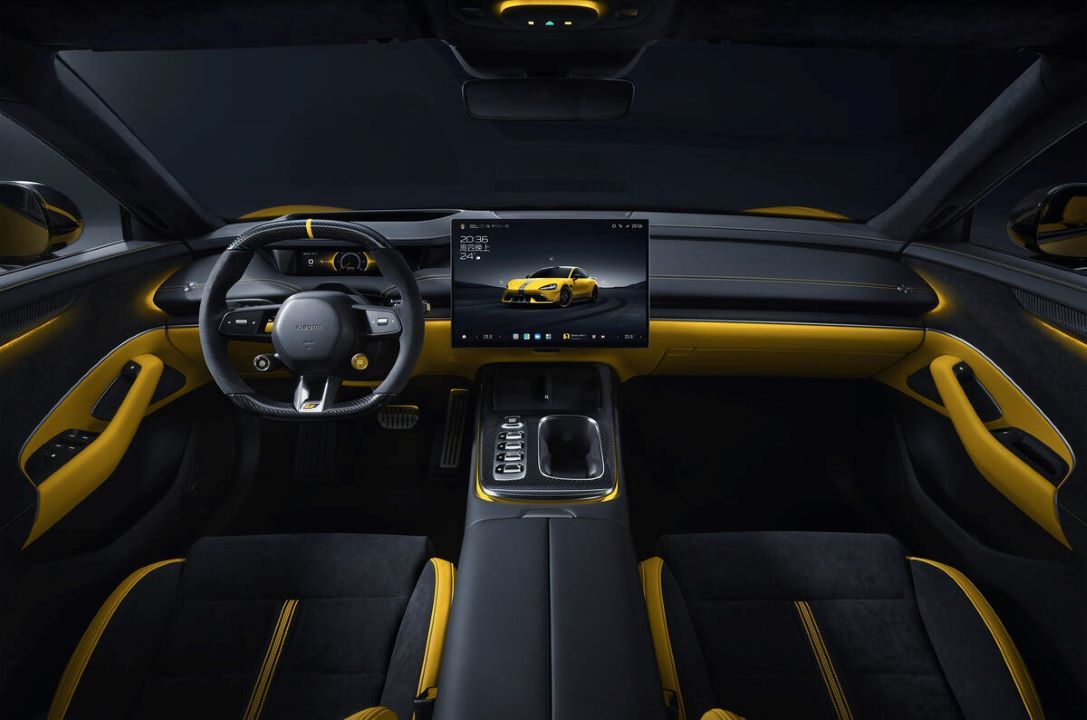Xiaomi SU7 Ultra is based on the manufacturer's Modena EV platform and 800V electrical engineering, and the CATL Qilin 2.0 battery with a power capacity of 93.7 kWh and a maximum output of 1330 kW provides a range of up to 620 km according to the Chinese CLTC measurement cycle. It takes just 11 minutes to charge the battery from 10 to 80 percent.
Photo: Xiao Mei
Unlike the lesser SU7, the SU7 Ultra gets advanced Bilstein Evo T1 shocks and other chassis components developed in collaboration with Prodrive, and the chassis tuned by the British motorsport and car design company. The excellent deceleration ability of the SU7 Ultra (100-0 km/h: 30.8 metres) is ensured by the AP Racing carbon-ceramic brake system.
These are the largest ceramic discs in the world
(430 mm in diameter at the front, 410 mm at the rear), it includes six-piston front and floating rear brake calipers, and the maximum temperature of the discs reaches 1,300 degrees Celsius.

Xiaomi SU7 Ultra is the fastest
The yellow prototype prepared by Prodrive, which features, among other things, a carbon fiber body, recently set an official lap record among four-door sedans at the Nürburgring:
He recorded a time of 6:46.874 seconds on a 20.8 km circuit
With British driver David Pittard behind the wheel. This time among electric cars is only one second worse than the Nio EP9 track car's lap, but approximately. More than 20 seconds better than the Rimac Nevera and Porsche Taycan Turbo GT and 40 seconds better than the Tesla Model S Plaid. Of course, the production version of the SU7 Ultra will have a less extravagant aerodynamics and cooling package than the lap-measured prototype, with a smaller front splitter, a revised bonnet and a more discreet rear spoiler, and will be equipped with an active diffuser. Which can be tilted at an angle of 16 degrees.











































